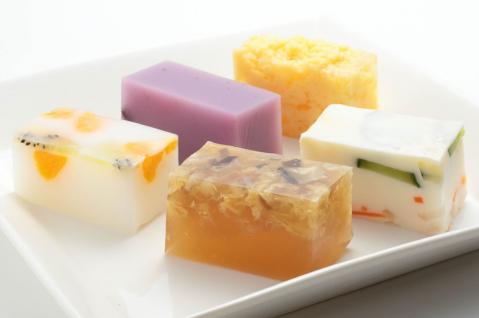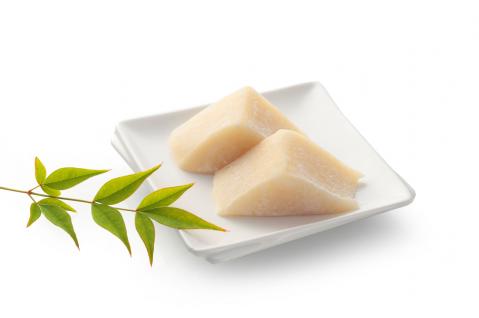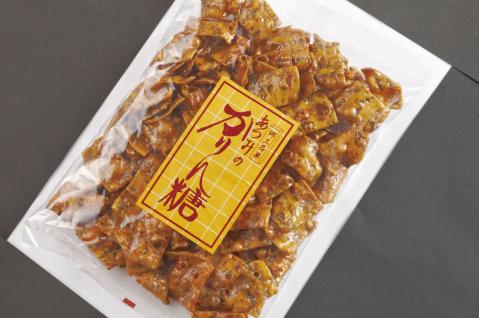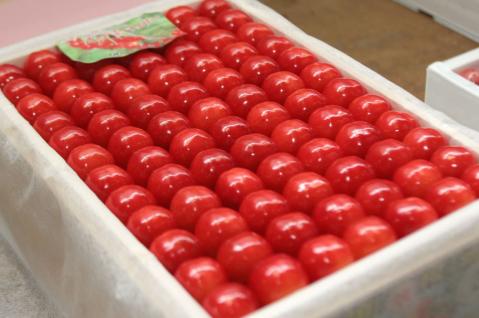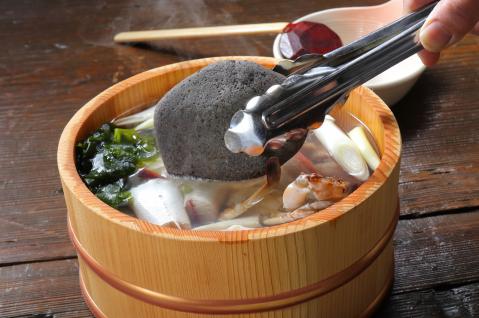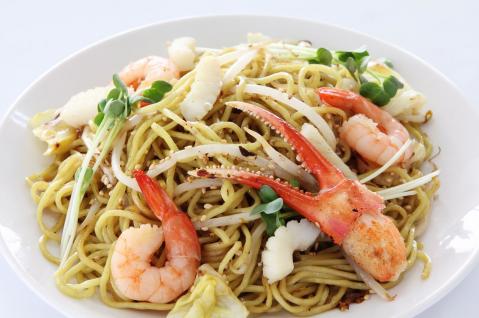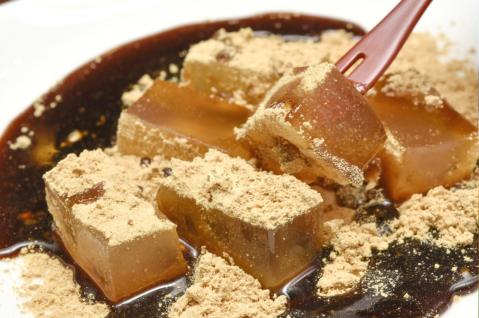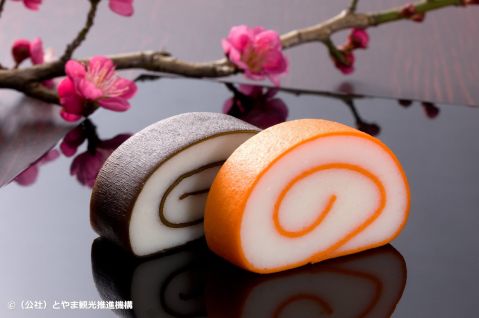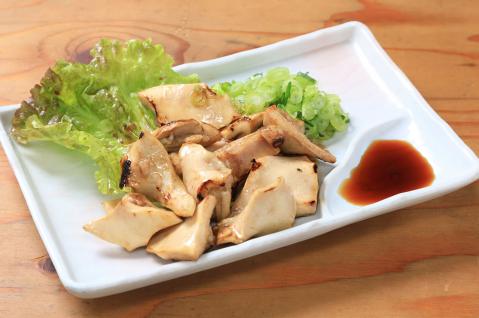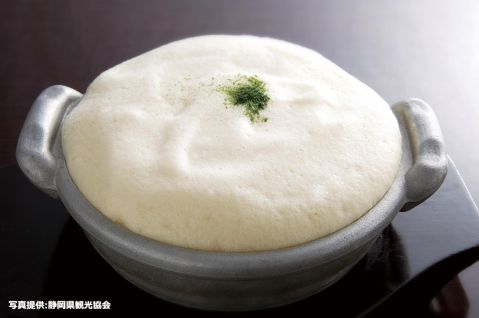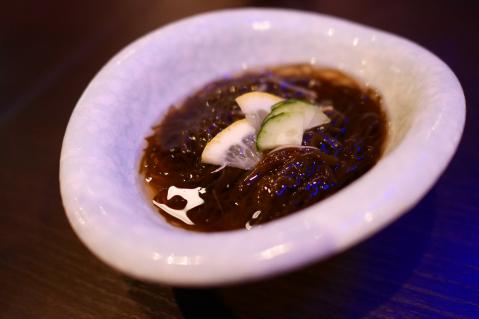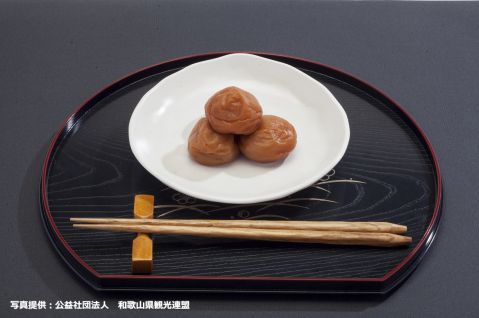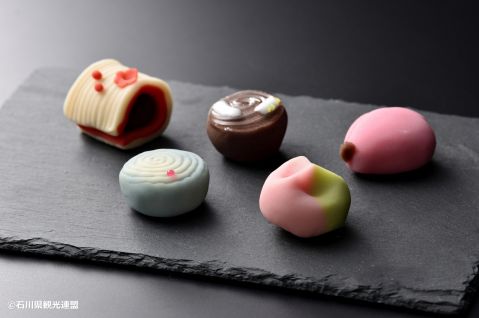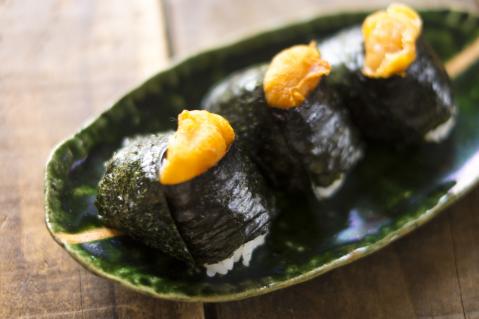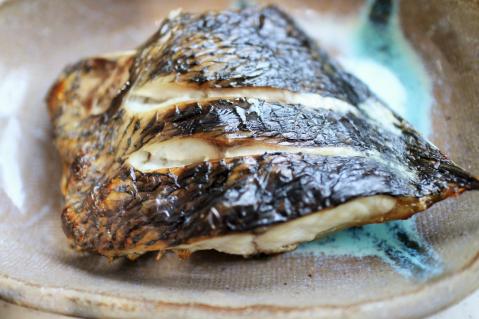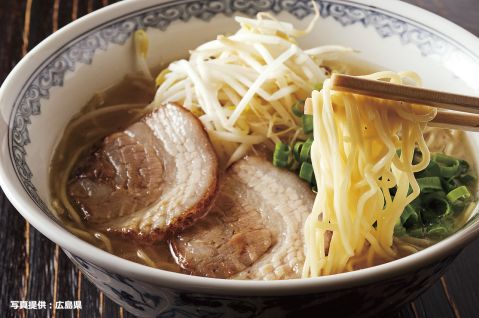Kiritanpo
A flavorful hot pot infused with the aroma of charcoal-grilled rice – Akita's traditional "Kiritanpo Nabe"
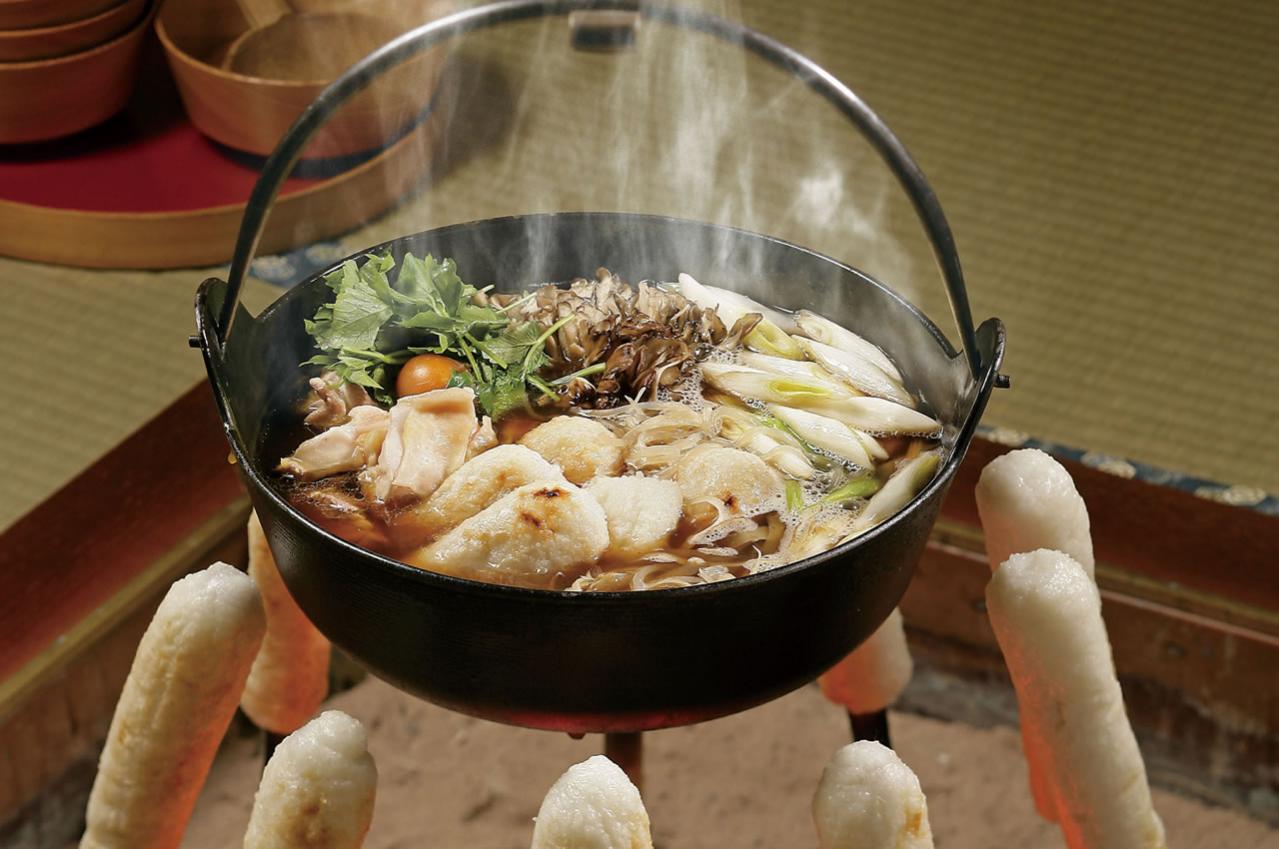
About Kiritanpo
Kiritanpo Nabe (きりたんぽ鍋, Kiritanpo hot pot) is a traditional dish from Akita Prefecture. It features "tanpo" – rice that has been cooked, mashed, wrapped around cedar wood sticks, and grilled – simmered with chicken and vegetables in a savory broth. This hearty dish is believed to have originated in Odate City and Kazuno City in northern Akita. Legend has it that people working in the mountains during charcoal-making and tree-felling would mold leftover rice around sticks, grill it, and add it to chicken hot pot for a satisfying meal.
The name "tanpo" comes from its resemblance to the "tanpo" (a protective cover for spear tips), and when cut into smaller, easy-to-eat pieces for hot pot preparation, it became known as "kiritanpo." Locally, it is enjoyed simmered in chicken broth or grilled with a coating of miso.
The main ingredients of Kiritanpo Nabe include Hinai Jidori chicken (a prized Akita breed), burdock root, long green onions, seri (Japanese parsley), maitake mushrooms, and shirataki noodles. Hinai Jidori chicken boasts fine-textured fat that pairs perfectly with the tender tanpo.
From a nutritional perspective, chicken is rich in protein and B vitamins, which support muscle growth and recovery from fatigue. Burdock root provides ample dietary fiber to aid digestion, while seri is packed with vitamins A and C, offering immune-boosting and antioxidant benefits.
Kiritanpo Nabe pairs wonderfully with sake brewed in Akita. Crisp and dry sake enhances the flavors of the chicken and vegetables, deepening the overall enjoyment of this comfort food.
Every year in Akita, events like the "Authentic Odate Kiritanpo Festival" and the "Kiritanpo Birthplace Festival" are held, drawing both locals and tourists. These festivals allow visitors to experience making their own kiritanpo and savor freshly prepared Kiritanpo Nabe – a perfect opportunity to immerse yourself in Akita's rich culinary traditions.
When you visit Akita, be sure to indulge in authentic Kiritanpo Nabe paired with locally brewed sake, and discover the warmth and flavors of this cherished traditional cuisine.
Related videos
Reviews
There are no reviews yet.
Regional cuisine of Akita region
Japanese Cuisine - Local cuisine
Kind of food
Recommended
-
![Gyuten]()
Gyuten
Gunma / >Local cuisine -
![Wagashi (Traditional Japanese Sweets)]()
Wagashi (Traditional Japanese Sweets)
Ishikawa / >Local cuisine -
![Stone-Cooked Dish]()
Stone-Cooked Dish
Akita / >Nabe dish -
![Tenmusu]()
Tenmusu
Aichi / >Bento & Onigiri -
![Tofu Chikuwa]()
Tofu Chikuwa
Tottori / >Local cuisine -
![Grilled Black Seabream]()
Grilled Black Seabream
Yamagata / >Seafood -
![Tama Konnyaku]()
Tama Konnyaku
Yamagata / >Local cuisine -
![Hiroshima Ramen]()
Hiroshima Ramen
Hiroshima / >Ramen

